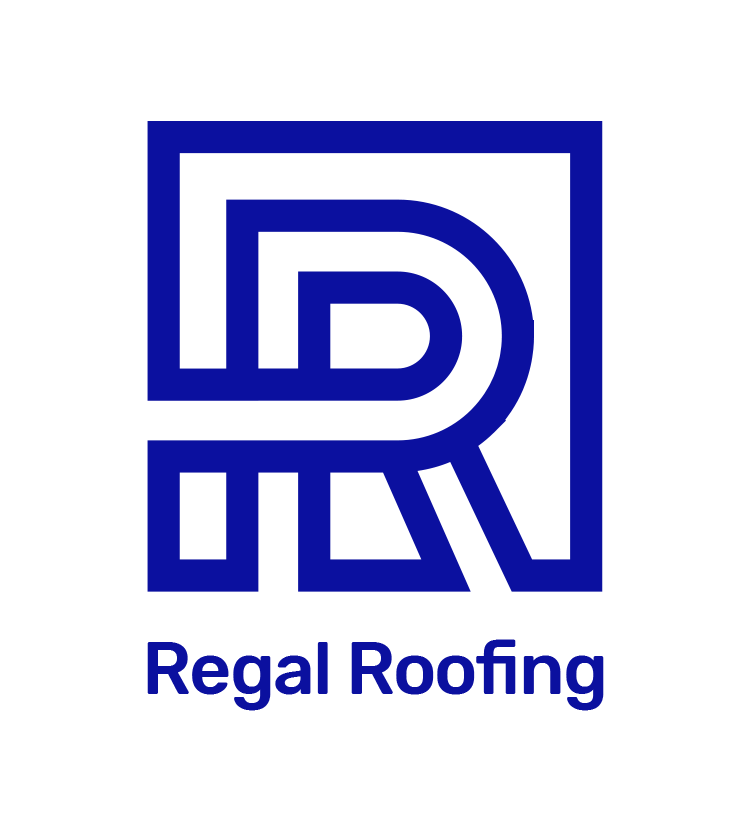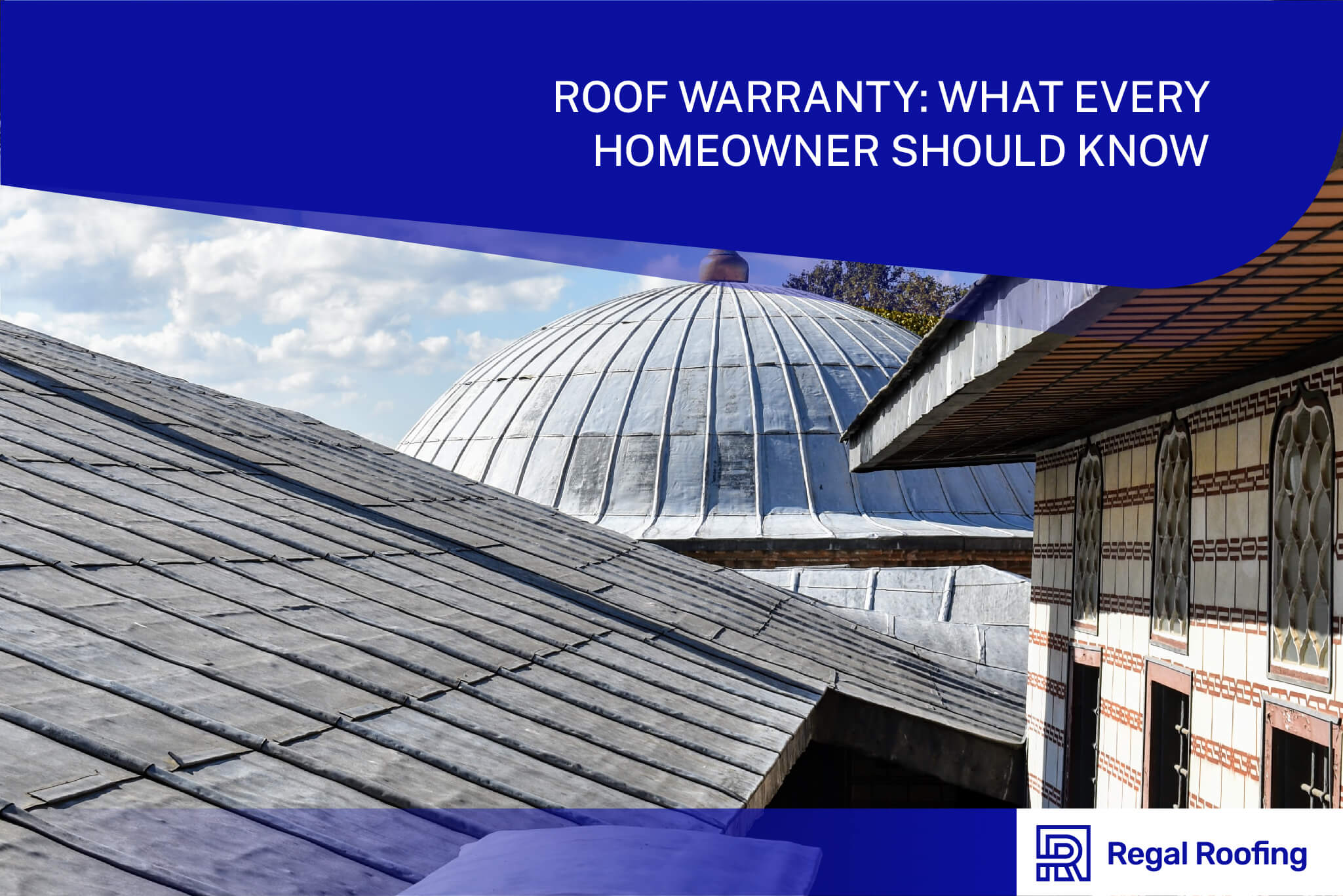A roof warranty is more than just a piece of paper; it’s a crucial part of your roofing investment. Understanding the intricacies of roof warranties can be daunting, but it’s essential for homeowners to grasp what is covered and what isn’t. In this detailed guide, we’ll explore the different types of roof warranties, what they cover, and important tips to keep your roof’s warranty intact. With expert insights from Regal Roofing, you’ll be equipped to make informed decisions about your home’s roofing needs.
What is A Roof Warranty?
A roof warranty is a promise from the manufacturer or roofing contractor, assuring the quality and longevity of your roof. In the sunny and sometimes stormy climate of Florida, a robust roofing warranty becomes even more critical. It’s not just about having a warranty; it’s about understanding the protection it offers against various roofing issues.
When considering a roof warranty, it’s important to partner with a reliable and experienced roofing company. For those in Florida, choosing a certified roof contractor can make a significant difference in the level of protection and peace of mind you receive.
The Importance of Different Roof Warranties
Understanding the different types of roof warranties and their specific terms is crucial for homeowners, as it provides a safety net for one of the most significant parts of a home. A roof is not only an investment but also a critical component in protecting the structure and interior of a house from bad weather. Here’s a deeper look into why understanding roof warranties is essential:
- Peace of Mind: Knowing that your roof is under warranty, homeowners can have peace of mind. In the event of damage or defects, they can rely on the warranty to address the issues without the stress of managing the full cost.
- Resale Value: A transferable roof warranty can be an attractive feature when selling a home. It adds value to the property and is appealing to potential buyers.
- Choosing the Right Warranty: Homeowners should compare different roof warranties based on their needs and the local climate. A roofing warranty that’s ideal in a region with heavy snowfall might not be suitable for an area prone to hurricanes.
- Legal and Insurance Implications: In some cases, having a certain type of roof warranty can affect insurance premiums.
Contractor Roof Warranty vs. Manufacturer Roof Warranty
Understanding the difference between these two types of warranties is key to recognizing what is covered in case of roofing issues.
- Contractor Roof Warranty: This warranty is provided by the roofing contractor and typically covers workmanship and installation-related issues. For instance, if you’re working with a local roofer, their warranty will likely cover aspects related to installation quality.
- Manufacturer Roof Warranty: Issued by the manufacturer of roofing materials, this warranty generally covers defects in roofing materials. Whether you’re installing a new roof or replacing an existing one, the materials used will be under this warranty.
Material Warranty vs. Labor Warranty
It’s important to distinguish between material and labor warranties, as they cover different aspects of roofing.
- Material Warranty: This type of warranty covers any defects in the roofing materials themselves. If, for example, you’re using asphalt shingles, the material warranty would protect against issues like premature deterioration.
- Labor Warranty: This covers the cost of labor required to fix any issues covered under the warranty. It’s crucial when addressing workmanship-related problems.
Labor Warranty vs. Roof Workmanship Warranty
Understanding the distinction between labor and workmanship warranties can guide homeowners in addressing specific roofing issues.
- Labor Warranty: This warranty is often included in the manufacturer’s warranty, covering labor costs for repairs or replacement of defective materials.
- Roof Workmanship Warranty: Specifically addresses issues arising from the installation process. It’s essential to ask your contractor about this, as workmanship quality varies.
NDL Roof Warranty (Full System Warranty) vs. Prorated Warranty
The choice between an NDL and a prorated warranty can impact the long-term protection and costs for your roof.
- NDL (No Dollar Limit) Roof Warranty: A comprehensive coverage option that doesn’t limit the cost of repairing material and workmanship issues.
- Prorated Warranty: Coverage and value decrease over time. Initially, it may cover all costs, but as the roof ages, the coverage reduces.
Roofing Warranty Covers
Each type of roofing warranty has its specifics regarding what is covered:
- Workmanship Warranty: Addresses installation errors. For instance, if there’s an issue with how your hurricane-damaged roof was repaired, this warranty would come into play.
- Material Warranty: Ensures the roofing materials, such as shingles or tiles, are free from manufacturing defects.
- Full System Warranty: This is an all-encompassing warranty covering both materials and labor.
- Labor-Only Warranty: As the name suggests, this covers only the labor costs associated with fixing covered issues.
Not Typically Covered In A Roof Warranty
While a roof warranty provides significant protection, there are typically exclusions. Understanding these can help manage your expectations:
- Acts of God: Natural disasters like hurricanes, tornadoes, and extreme weather events are usually not covered.
- Ponding or Standing Water: Issues arising from water pooling on the roof can lead to exclusions.
- Existing Moisture in Roofing System: Pre-existing conditions or damages prior to the warranty being issued.
- Improper Roof Repair: Repairs not conducted by a certified professional can void the warranty.
- Improper Gutter Installation: Incorrectly installed or maintained gutters causing damage.
- Consequential Roof Damages: Indirect damages as a result of other issues not covered under the warranty.
Some Factors that May Void Your Roof Warranty
Certain actions or modifications can void your roof warranty. Being aware of these is crucial:
- Installing New Shingles Over Old Ones: This can lead to improper installation and void the warranty.
- Antenna or Satellite Dish Installation: Adding these fixtures can compromise the roof’s integrity.
- Solar Panel and HVAC Installation: Must be done by certified professionals to avoid warranty issues.
- Skylight Installation: Incorrect installation can lead to leaks and other problems.
- Unauthorized Accessories: Installation of any non-approved additions to the roof.
- Pressure Washing the Roof: Can damage roofing materials and lead to warranty voidance.
- Poor Roof Ventilation: Proper roof ventilation is crucial for maintaining the health of your roof.
- Unauthorized Roofing Work: All repairs and modifications should be carried out by an authorized contractor to maintain warranty validity.
Some Roofing Warranty Tips
To make the most of your roof warranty, consider these tips:
- Always register your warranty and read all the fine print: Ensure you understand the terms and conditions.
- Do not choose a warranty that solely covers roofing materials: A comprehensive warranty covering both materials and workmanship is more beneficial.
- Request an “extended warranty coverage” from the roofing contractor: This can provide additional protection beyond standard terms.
- Schedule regular inspections: Regular check-ups by a professional can help maintain the warranty’s validity. Regal Roofing offers roof damage inspections to keep your warranty intact.
- Hire a local licensed, insured, and certified roof contractor: A reputable contractor can ensure quality workmanship and adherence to warranty requirements. This is particularly important if you need a new roof.
Not Every Roofing Contractor Can Give The Same Warranty
Not all roofing contractors offer the same level of warranty protection, and the expertise of the roofing company is crucial in this regard. Regal Roofing, a trusted name in the industry, provides comprehensive warranties tailored to meet specific needs, ensuring the highest level of protection and peace of mind for their clients. The right roofing contractor, like Regal Roofing, not only offers robust warranty coverage but also brings a wealth of knowledge and reliability, ensuring your roof stays in prime condition for years. Their commitment to quality and customer satisfaction means your roofing investment is secure and well-protected. For more information, always feel free to ask a roofing contractor at Regal Roofing for expert guidance. Contact Regal Roofing today for personalized guidance and top-notch roofing solutions!
Roofing Warranty Guide FAQs
Roof warranties in Florida typically range from 10 to 50 years for materials and 1 to 10 years for workmanship, depending on the manufacturer and contractor.
Your roof warranty can usually be found in the documentation from your roof’s installation or repair. If unavailable, contact the roofing contractor or the materials’ manufacturer directly.
Home warranties may cover roofs, but coverage varies. Check your home warranty contract to see if roof damage is included and understand the extent of the coverage.
Coverage for roof leaks under a home warranty depends on the contract specifics. Some plans cover leaks, but there may be exclusions based on the cause or type of damage.


